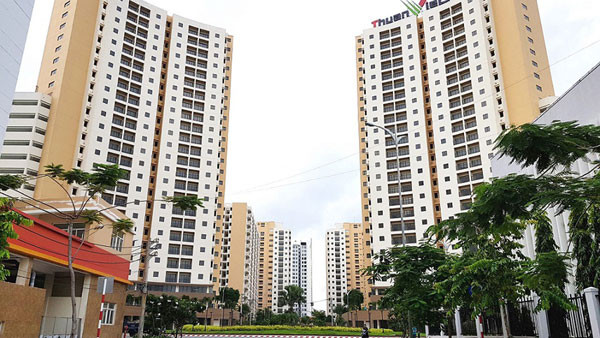
Speaking at a recent seminar held by the Investment and Trade Promotion Center of HCMC (ITPC) in collaboration with the Vietnam International Arbitration Center (VIAC), many experts and businesses attributed the scarcity to the restrictive mechanism, legal procedures and tightened cash flow into real estate.
Dr. Tran Du Lich, vice president of VIAC, said the domestic real estate market is not sustainable. In 2009, the market was frozen, with numerous semi-products and high-class apartments unsold, but affordable homes still sold well, unlike the current situation when few housing products are available.
Lich added, “The reason is not only due to the impact of the Covid-19 pandemic. Rather, the scarcity is related to the mechanism, legal procedures and tightened cash flow into real estate such as credit and corporate bonds, leading hundreds of real estate projects to stall.”
Le Hoang Chau, chairman of the HCMC Real Estate Association (HoREA), said that from 2015 to 2021, HCMC had few projects licensed leading to a shortage of housing products. Annually, about 30,000 newly built houses were offered for sale, but in recent years, that number has halved to only some 16,000 per year. In particular, the market lacks an affordable housing segment now.
He said that the city’s real estate market is facing many difficulties, with a severe undersupply, and hundreds of projects have faced legal hindrances.
According to him, there are three main funding channels for real estate businesses. However, two channels are being squeezed, including credit and bonds, while raising capital from customers is also “stuck”, making it tough for real estate businesses.
Chau said the real estate market’s health reflects the health of the economy. If the real estate market is in trouble, the economy would feel the impact.
He suggested that the Government smoothen out capital flows for the real estate market to ensure healthy and sustainable development with transparency and fairness.
Can Van Luc, a member of the National Financial Monetary – Policy Advisory Council and chief economist at BIDV, said the real estate market is important as it makes up 4.5% of the nation’s GDP. This market is related to many other industries such as construction, tourism, catering, banking and finance, and also attracts a lot of FDI capital.
According to Luc, the real estate market is closely related to banking, securities, and insurance. If there is a problem in one segment, there would be a big impact on the other markets.
In addition, there are problems related to legal issues in dozens of different laws such as land price, land fee collection, land allocation and land lease, which need to be considered for removal soon.
Cao Phi Van, deputy director of ITPC, said domestic and foreign investors are also interested in the real estate sector. However, due to the inadequacy and overlapping laws causing hindrances, it is considered unattractive to such investors.
Source: SGT